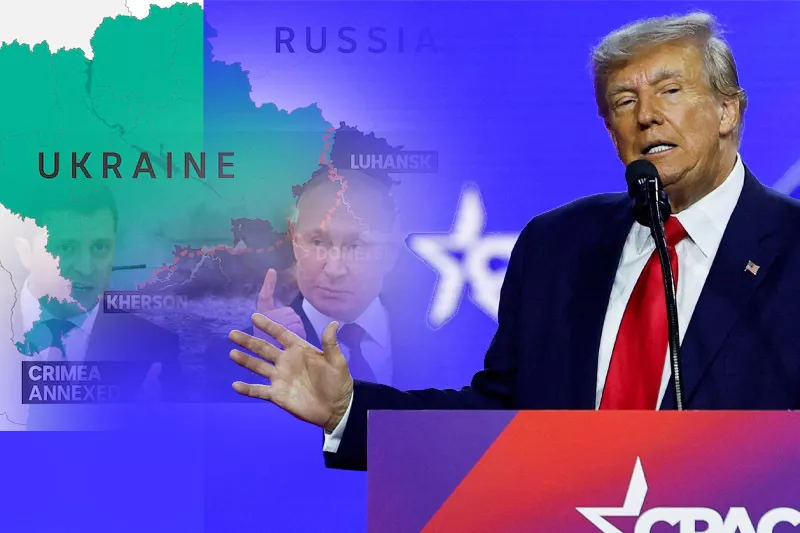In a time of global tension, former President Donald Trump has weighed in on the ongoing Russian invasion of Ukraine. However, his comments during a CNN town hall Wednesday night offered more ambiguity than clarity, leaving many questions about his stance on the issue and what it might mean for the future of US foreign policy.
Avoiding Binary Outcomes
Trump’s approach to the Ukrainian crisis appears to avoid binary outcomes, a departure from the traditional stance of choosing a side in a conflict. When pressed on who he believes should prevail in the conflict, Trump would not commit to supporting either Russia or Ukraine. He instead expressed his desire for an end to the casualties, stating, “I want everybody to stop dying. Russians and Ukrainians. I want them to stop dying.” While this sentiment may be universally shared, it offers little in terms of a concrete policy response.
Reluctance to Provide Military Aid
Trump further expressed hesitation when asked about providing US military aid to Ukraine, a crucial factor in the country’s resistance against Russian forces. His concern centered around the depletion of US resources, suggesting that aid to Ukraine would leave the US inadequately equipped. This perspective contrasts with the current Biden administration’s policy, which has provided Ukraine with $36.9 billion in military aid since the war’s onset in February 2022.
Europe’s Role in the Conflict

Adding another layer to his stance, Trump called on Europe to contribute more to the resolution of the crisis, though he did not specify what form such contributions should take. This viewpoint aligns with his previous criticisms of NATO countries for not meeting defense spending targets during his presidency.
A Careful Dance around Putin
Trump’s relationship with Putin has been a point of contention and speculation throughout his political career. In the town hall, he was careful to neither outright condemn nor praise the Russian leader, sidestepping the question of whether Putin could be considered a war criminal. His reasoning appeared to center on the notion that labeling Putin a war criminal might complicate diplomatic negotiations to end the conflict.
However, he did refer to Putin as a “smart guy” who made a “tremendous mistake” in invading Ukraine, subtly criticizing the Russian leader while still acknowledging his cunning. This nuanced approach towards Putin is consistent with Trump’s past dealings with the Russian leader, walking a fine line between criticism and admiration.
Implications for US Foreign Policy
Trump’s comments during the town hall raise significant questions about his approach to foreign policy, particularly if he were to secure the Republican nomination and potentially win the presidency in 2024. His reluctance to commit to providing military aid to Ukraine and his call for Europe to contribute more financially could signal a shift towards a more isolationist stance, with less direct US involvement in international conflicts.
Meanwhile, his careful positioning on Putin suggests that his approach towards Russia would likely continue to be one of cautious engagement, potentially prioritizing dialogue over outright condemnation or confrontation.
In conclusion, Trump’s comments on the Ukrainian crisis underscore his unique approach to foreign policy – one that avoids clear-cut positions and embraces ambiguity. Whether this approach would yield constructive outcomes in resolving international conflicts is a question that remains open for debate. As the situation in Ukraine continues to evolve, the global community will no doubt keep a close eye on the foreign policy stances of potential future leaders, including Trump.
©world-news.biz
